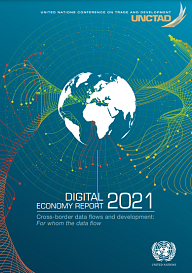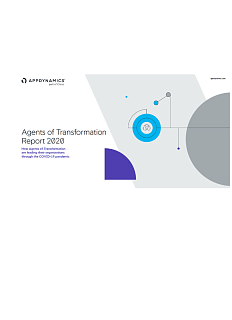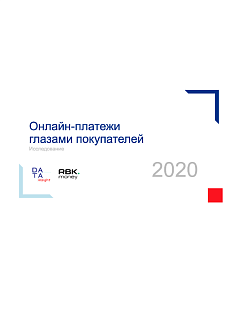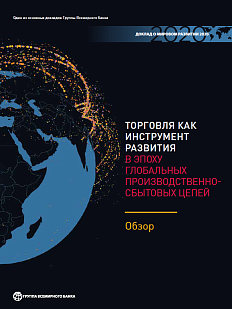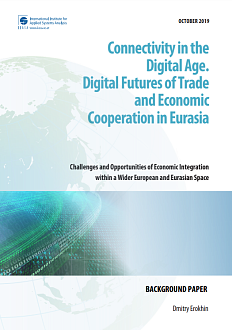The Digital Economy Report 2021 by UNCTAD deals with the development and regulation of cross-border flows of digital data which are core to all fast-evolving digital technologies, such as data analytics, artificial intelligence (AI), blockchain, Internet of Things (IoT), cloud computing and other Internet-based services.
The Roscongress Foundation presents the salient points of the publication accompanied by fragments of broadcasts of relevant panel discussions from the business programme of international events held by the Roscongress Foundation.
Data flows are hard to measure, but growing fast.
The authors of the report note that although measuring data traffic is difficult, it’s clear that data flows are growing every year. One forecast suggests that global Internet Protocol (IP) traffic in 2022 — domestic and international — will exceed all Internet traffic up to 2016. The COVID-19 pandemic had a dramatic impact on Internet traffic, as most activities increasingly took place online. Against this backdrop, global Internet bandwidth rose by 35 per cent in 2020, the largest one-year increase since 2013. Monthly global data traffic is expected to surge from 230 exabytes in 2020 to 780 exabytes by 2026. Measuring cross-border data flows is even more challenging. In terms of volume, the most commonly used measure is that of total used capacity of international Internet bandwidth. This refers to the amount of data flowing in terms of bytes, but does not show the direction of the flows, nor anything about the nature and quality of the data.
The authors of the report point out that despite the importance of data in the evolving digital economy, there is no universally agreed understanding of the concept of data, which may lead to confusion and increase complexity in analyses and policy debates. Data are a special resource, with specific characteristics that make them different from goods and services. They are intangible and non-rival, which means that many people can use the same data simultaneously, or over time, without depleting them. Cross-border data flows are not trade and should be treated differently. Moreover, data are of a multidimensional nature. At the same time, access to data can be limited by technical or legal means, resulting in varying degrees of excludability.
The data-driven digital economy is characterized by large imbalances.
When assessing the role of cross-border data flows, some key digital divides and imbalances need to be considered, UNCTAD experts assert. Only 20 per cent of people in least developed countries (LDCs) use the Internet; when they do, it is typically at relatively low download speeds and relatively high prices. Moreover, the nature of use differs. For example, while up to 8 in 10 Internet users shop online in several developed countries, that figure is less than 1 in 10 in many LDCs. Further, within countries, there are significant divides between rural and urban areas, as well as between men and women. The largest gender divides are observed among LDCs and in the African region. In terms of capacity to engage in and benefit from the data-driven digital economy, two countries stand out: the United States and China. Together, they account for half the world’s hyperscale data centres and the highest rates of 5G adoption in the world.
The traditional digital divide between developed and developing countries — understood in terms of Internet connectivity, access and use — remains high, and it is a recurrent challenge for development. Moreover, as the role of data as an economic resource, as well as that of cross-border data flows, has become more relevant, new dimensions of the digital divide have emerged, in connection with the «data value chain».
Approaches to governing data flows vary across countries. Global data governance might become an effective solution.
Among the major economic and geopolitical players in the digital economy, the approaches for governing data flows — and the digital economy more broadly — vary considerably, and there is, with few exceptions, little consensus at the regional and international levels. Worldwide, three main governance approaches are of particular influence. The approach of the United States focuses on control of the data by the private sector. The Chinese model emphasizes control of data by the Government, while the European Union favours control of data by individuals on the basis of fundamental rights and values. The current context is one of tensions among these areas, particularly between the United States and China.
The authors of the report state that there are good reasons for global governance of cross-border data flows, and there is a strong rationale for a global data governance framework that complements other levels of data governance. For instance, global data governance would help enable global data-sharing, and develop public goods that could help address major global development challenges, such as poverty, health, hunger and climate change. Technical coordination across borders — ideally at the global level — is essential to avoid further fragmentation of the Internet infrastructure and the digital space. Effective global governance of data is a prerequisite for data to support the attainment of the economic, social and environmental objectives. UNCTAD experts assert that efforts to develop a global approach to the governance of data and cross-border data flows should address a number of key policy areas and priorities. A new institutional setup is needed to meet the global data governance challenge.
Gain more insights about innovation and digitalization in the Digitalization, Big Data, Innovation infrastructure, and IT industry sections of the Roscongress Information and Analytical System.


